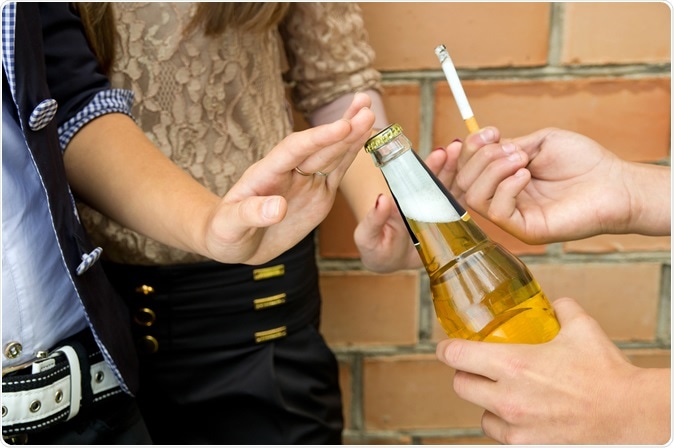A new study has found that more young adults in England, aged between 16 and 24 are turning away from alcohol consumption and this has made the current generation one of the most sober in recent times. The study was published in the recent issue of the journal BMC Public Health.

Image Credit: milias1987 / Shutterstock
The study found that teetotallers among the 16 to 24 year olds has risen from 18 percent in 2005 to 29 percent in 2015 and abstinence from alcohol is gradually becoming “mainstream”.
The team of researchers from the University College London conducted a survey and noted that nearly 50 percent of the participants had not touched alcohol in the past week.
This number was around 35 percent in 2005, they noted. The information for this study was derived from the annual Health Survey for England where 10,000 young adults were included.
The team found that “lifetime abstainers” from alcohol rose from 9 percent in 2005 to 17 percent in 2015. Binge drinking too declined from 27 percent to 18 percent over these 10 years. Similarly harmful drinking declined from 43 percent in 2005 to 28 percent in 2015.
The study concluded that young adults today were drinking less than their parents did but alcohol consumption rates failed to decline among smokers, those with mental health conditions and also among certain ethnic minorities.
Dr Linda Ng Fat, who led this study said in a statement, “Increases in non-drinking among young people were found across a broad range of groups, including those living in northern or southern regions of England, among the white population, those in full-time education, in employment and across all social classes and healthier groups.
The increase in young people who choose not to drink alcohol suggests that this behaviour maybe becoming more acceptable, whereas risky behaviours such as binge drinking may be becoming less normalised.”
According to Dr. Fat these results are also consistent with other findings such as a decline in smoking and recreational drugs abuse along with other risky behaviors.